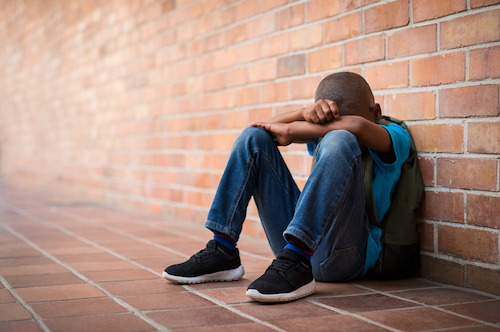 Young boys entering the sixth grade who have concurrent problems with social skills, anxiety and conduct and learning issues are at greater risk of developing aggressive behaviours and using marijuana, tobacco and alcohol by the time they finish eighth grade.
Young boys entering the sixth grade who have concurrent problems with social skills, anxiety and conduct and learning issues are at greater risk of developing aggressive behaviours and using marijuana, tobacco and alcohol by the time they finish eighth grade.
A recent study from the University of Illinois studied more than 2600 middle school aged boys across 37 schools in Chicago, North Carolina, Georgia and Virginia. They identified different recurring kinds of behavioural, social and emotional learning problems among the boys studied. At four points throughout the study, the first being in the fall of sixth grade and the final being in the spring of eighth grade, the boys were surveyed on their use of cigarettes, alcohol and marijuana in the previous 30 days, as well as their verbal, physical and relational aggression levels.
“Early adolescence is an important period of development – it is a time when they are most susceptible to peer influences. For young people with difficulties in their social skills development, they are at increased risk for poor outcomes,” Professor Kevin Tan, principal investigator and professor of social work at the University of Illinois, told Theravive.
Tan found that while substance abuse increased among all boys surveyed over time, the fastest increase was seen among those boys who had the most difficulty with social skills.
“I used to work as a school social worker and saw many students with difficulties in their social, emotional and learning skills. I also saw how these issues relate to poor behavioral outcomes over time like aggression and substance use. Based on my practice experience, it is important for schools to screen and understand students’ social-emotional needs,” Tan said.
During the study, at each of the four check in points, a teacher reported on the boys’ development of social skills, as well as reporting any anxiety or problems related to learning. Teachers were also asked to outline the conduct of the students surveyed and detail how often they skipped class or stole from other students.
Tan was able to categorise behavioural problems in to four distinct categories: learning, conduct, anxiety and social skills. Boys who were having significant problems in all four of these areas were the most likely to be aggressive or have substance abuse problems.
Boys in the study who had well developed social and emotional skills, as well as good attitudes towards their learning and conduct were found to only have a small increase in physical aggression and substance abuse.
Tan and his colleagues also identified risk patterns for a group that has been previously unexamined in the literature. These boys accounted for about 15 per cent of the sample in the study and had positive social skills but moderate levels of problems with anxiety, conduct and learning difficulties.
“My findings show that for this group, substance use increases over time, but to a lesser degree, as compared to boys with high problems across all areas. For these boys, positive social skills might be a factor related to increased substance use. Alcohol use, for example, is often associated to be a social event, for example, drinking with friends. While boys with positive social skills may not frequently be those that are referred for counseling or social work support, it is also important to screen for any problem behaviors and provide intervention support early on,” Tan said.
It is the good social skills of boys in this group, Tan hypothesizes, that could contribute to their higher levels of verbal aggression. They may be more adept at using non-physical forms of aggression as a way to lash out at others. Although rates of alcohol and marijuana use increased at lower rates in this group than in that of their high-risk peers, boys with better social skills may actually be more at risk of peer influences that encourage experimentation with alcohol and drugs at a young age.
Tan says it is important that schools pay attention to differing social and emotional behaviours at such a crucial stage of development.
“It is important to understand the constellation of social-emotional problems that young people struggle with. It reflects their proneness to aggression and substance use. It is important for schools to pay attention to students with social-emotional difficulties. It is important for schools to screen and identify early on students who may have difficulties with the social-emotional needs. Early intervention support for these students is crucial,” Tan said.
Elizabeth Pratt is a medical journalist and producer. Her work has appeared on Healthline, The Huffington Post, Fox News, The Australian Broadcasting Corporation, The Sydney Morning Herald, News.com.au, Escape, The Cusp and Skyscanner. You can read more of her articles here. Or learn more about Elizabeth and contact her via her LinkedIn and Twitter profiles.